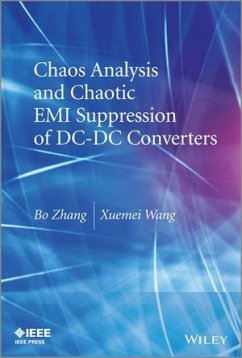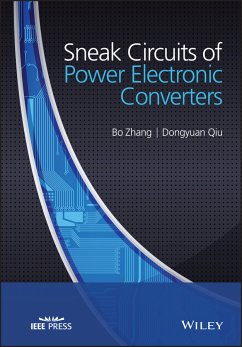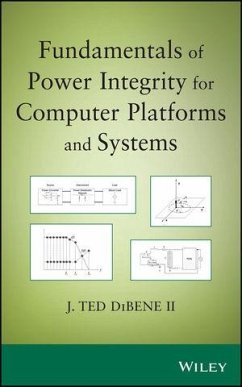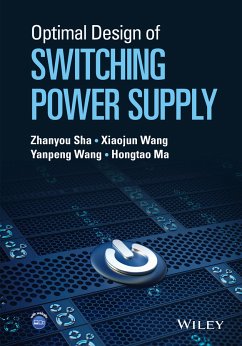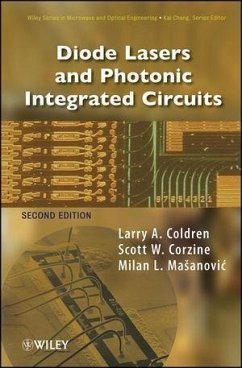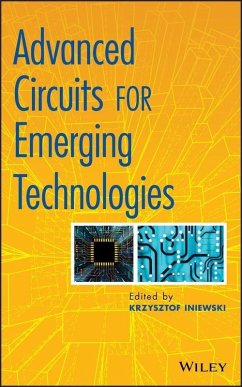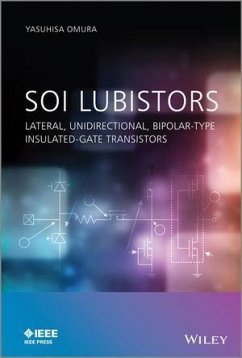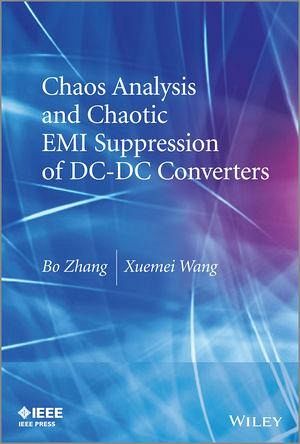
Chaos Analysis and Chaotic EMI Suppression of DC-DC Converters (eBook, ePUB)
Versandkostenfrei!
Sofort per Download lieferbar
106,99 €
inkl. MwSt.
Weitere Ausgaben:

PAYBACK Punkte
0 °P sammeln!
Introduces chaos theory, its analytical methods and the means to apply chaos to the switching power supply design DC-DC converters are typical switching systems which have plenty of nonlinear behaviors, such as bifurcation and chaos. The nonlinear behaviors of DC-DC converters have been studied heavily over the past 20 years, yet researchers are still unsure of the practical application of bifurcations and chaos in switching converters. The electromagnetic interference (EMI), which resulted from the high rates of changes of voltage and current, has become a major design criterion in DC-DC conv...
Introduces chaos theory, its analytical methods and the means to apply chaos to the switching power supply design DC-DC converters are typical switching systems which have plenty of nonlinear behaviors, such as bifurcation and chaos. The nonlinear behaviors of DC-DC converters have been studied heavily over the past 20 years, yet researchers are still unsure of the practical application of bifurcations and chaos in switching converters. The electromagnetic interference (EMI), which resulted from the high rates of changes of voltage and current, has become a major design criterion in DC-DC converters due to wide applications of various electronic devices in industry and daily life, and the question of how to reduce the annoying, harmful EMI has attracted much research interest. This book focuses on the analysis and application of chaos to reduce harmful EMI of DC-DC converters. After a review of the fundamentals of chaos behaviors of DC-DC converters, the authors present some recent findings such as Symbolic Entropy, Complexity and Chaos Point Process, to analyze the characters of chaotic DC-DC converters. Using these methods, the statistic characters of chaotic DC-DC converters are extracted and the foundations for the following researches of chaotic EMI suppression are reinforced. The focus then transfers to estimating the power spectral density of chaotic PWM converters behind an introduction of basic principles of spectrum analysis and chaotic PWM technique. Invariant Density, and Prony and Wavelet analysis methods are suggested for estimating the power spectral density of chaotic PWM converters. Finally, some design-oriented applications provide a good example of applying chaos theory in engineering practice, and illustrate the effectiveness on suppressing EMI of the proposed chaotic PWM. * Introduces chaos theory, its analytical methods and the means to apply chaos to the switching power supply design * Approaches the subject in a systematic manner from analyzing method, chaotic phenomenon and EMI characteristics, analytical methods for chaos, and applying chaos to reduce EMI (electromagnetic interference) * Highlights advanced research work in the fields of statistic characters of nonlinear behaviors and chaotic PWM technology to suppress EMI of switching converters * Bridges the gap between numerical theory and real-world applications, enabling power electronics designers to both analyze the effects of chaos and leverage these effects to reduce EMI
Dieser Download kann aus rechtlichen Gründen nur mit Rechnungsadresse in A, B, BG, CY, CZ, D, DK, EW, E, FIN, F, GR, HR, H, IRL, I, LT, L, LR, M, NL, PL, P, R, S, SLO, SK ausgeliefert werden.




